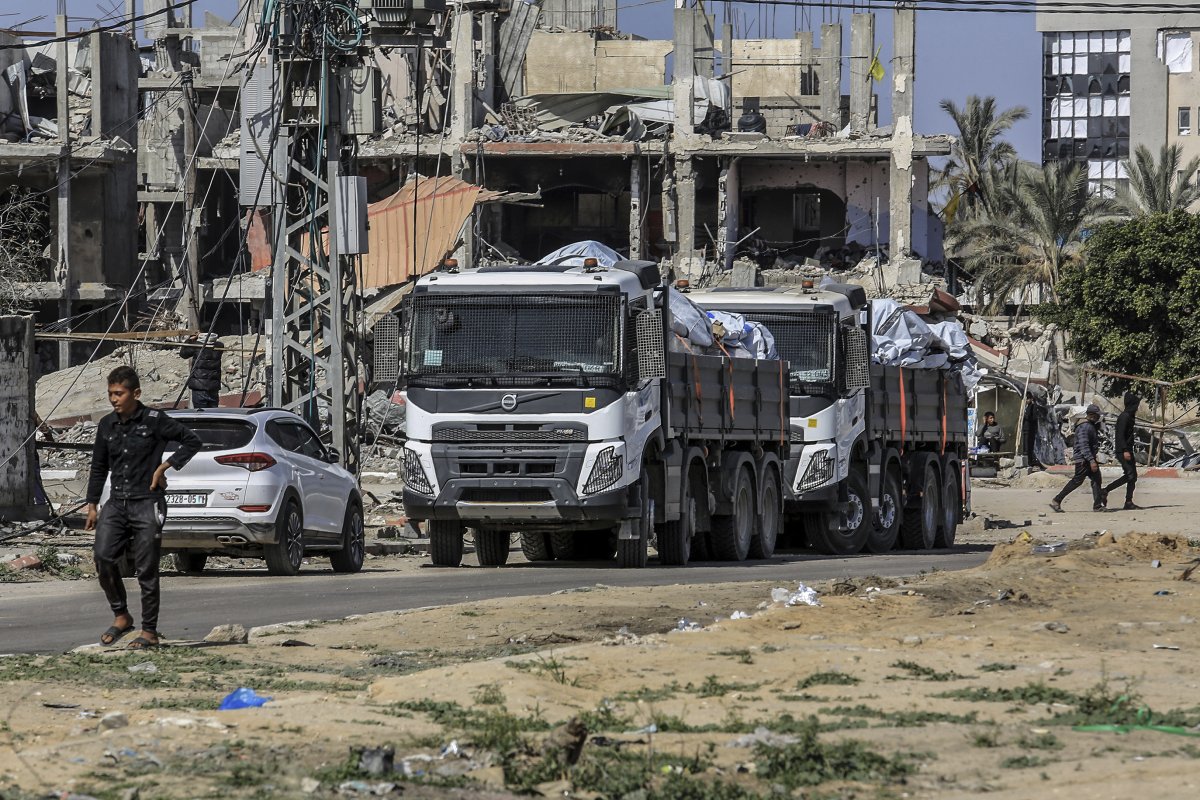After the end of the first six-week phase of the ceasefire, a number of Arab nations condemned Israel harshly for preventing the delivery of humanitarian aid to Gaza. Saudi Arabia and Qatar were among the nations that condemned Israel for its actions. Saudi Arabia called it “a tool for extortion” and “collective punishment,” while Qatar asked the international community to hold Israel “accountable.” This situation is a serious concern for the Palestinians in Gaza.
What is the Humanitarian Crisis?
A recent ceasefire that was brokered initially by Qatar, with significant influence from the administration of President Donald Trump, brought temporary relief to the area. It included a cessation in hostilities, a return of internal refugees to North Gaza and an increase in humanitarian aid. The humanitarian crisis is worsening in Gaza with the return of limited aid.
UN estimates indicate that Israeli airstrikes have caused the displacement of 1.9m people (or 90%) in Gaza. As vital infrastructure, including homes, have been damaged or destroyed by Israel’s bombings of Gaza. It is therefore vital that the country receives consistent, substantial and ongoing aid.
Israel has historically cited concern about the effectiveness of distribution of aid within Gaza, and accusations of resource theft committed by militants. These allegations have been made to justify restrictions on the entry of aid.
Arab countries have always opposed external control over the Gaza Strip, including a proposal reportedly made by Trump. Arab leaders responded quickly to Israel stopping aid, especially food and medicines, at the beginning of Ramadan. This shows the importance of this issue in the region. The Arab leaders’ response reflects their commitment to Palestinian autonomy and regional stability.

The Ceasefire Agreement and its Subsequent Events
In the initial phase of ceasefire that was to be concluded on March 1, there were generalized pauses in combat and an exchange between prisoners. Hamas freed 25 Israelis hostages and the bodies of eight people who had died. Israel in exchange released almost 2,000 Palestinian prisoners.
The office of Benjamin Netanyahu, Israeli prime minister, claimed on Sunday that Hamas had rejected the proposal made by Steve Witkoff – a Middle East Envoy for President Trump – to extend the ceasefire up until 20th April. The ceasefire would have been extended to cover both Ramadan as well as the Jewish Passover holiday.
Israel warned of the consequences of this purported rejection by suspending all supplies and goods into Gaza. In the first phase of the ceasefire, 600 trucks of aid entered Gaza on average every day, showing the extent of the disruption.
Hamas’ representative said that “it is the responsibility of the international community now to step in and force Israel to adhere to the deal signed to avoid further destabilizing the situations”, emphasizing external pressure.
These organizations and nations have all strongly condemned Israel for its decision to stop aid. They are concerned by the effects of the blockade on an already fragile population.
Israel had placed strict limits on Gaza’s aid delivery prior to the ceasefire. This has led to fears about famine growing, especially since the escalation of violence between Israel and Hamas. It was the Palestinian militant group that launched a surprise attack on Israel which sparked Israeli airstrikes and ground operations in Gaza.
Saudi Arabian Ministry of Foreign Affairs released a statement Israel’s actions were denounced. The statement stressed that the “use of aid as an extortion tool and collective punishment constitues a flagrant violation of International Law,” calling for international responsibility to ensure a continuous flow of humanitarian help.
Qatar’s Ministry of Foreign Affairs, which was a major mediator of the ceasefire accord, expressed similar concerns and labelled Israel’s actions as “a violation of international humanitarian law, Fourth Geneva Convention and religious principles.” This statement strongly rejected the “use of food as an instrument of war” and deliberate starvation against civilians. It also called on the international community not to allow humanitarian aid into all parts of Gaza Strip.
The AP reports that Egypt, a major mediator in the conflict has also accused Israel using “starvation to weaponize the situation.” AFP reported that the Egyptian Foreign Ministry characterized Israel’s decision as a “flagrant violation” of ceasefire agreement.
On November 20, 2024 the International Criminal Court, (ICC), issued an international arrest warrant against Netanyahu. They cited “the war crimes of starvation and warfare” to highlight the severity of the situation.
It is important to note that the word “you” means “you”. Jordan Times Sufyan Qudah is quoted as saying that Israel’s suspension of aid represents a “serious violation of the ceasefire accord and risk reigniting the violence in the Strip”, thus raising concern about escalating pressures.
Different perspectives on the Aid Stoppage
Oren Marmorstein, spokesperson for Israel’s Foreign Ministry, Hamas was accused of generating profit by utilizing the essential goods for terrorist activities and a shortage is not apparent.
International Committee of the Red Cross Concerns were expressed that progress made in the last few weeks was at risk. People could fall into greater poverty if they regress.
Caroline Seguin, emergency coordinator at Médecins Sans Frontières (MSF) Israel has been condemned for its act of blocking essential aid from reaching an entire population in order to achieve its objectives.
Oxfam, a humanitarian non-profit organization Israel’s decision was strongly condemned, stating that it amounted to collective punishment and is therefore a serious violation of international laws.
Tom Fletcher, U.N. Under-Secretary-General for Humanitarian Affairs and Emergency Relief Coordinator, It is important to allow humanitarian aid access, as it provides vital and lifesaving assistance. It is important to have a way of getting both the aid into the area and also releasing hostages.
Looking Ahead: Potential Scenarios
Uncertainty remains about the immediate future of a ceasefire. Es is not clear whether or when the mediators are going to come up with an agreement. The uncertainty about Gaza’s future and possible conflict escalation in the area has heightened concerns.


